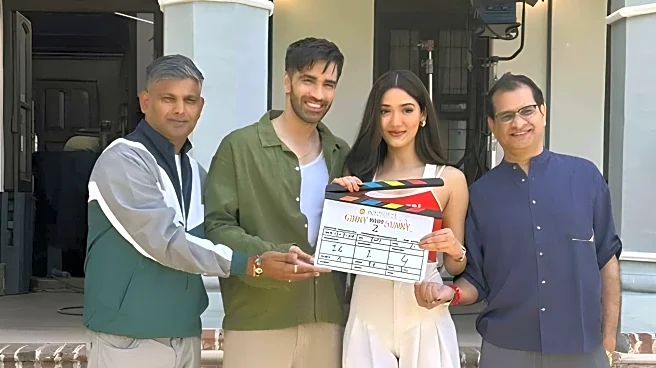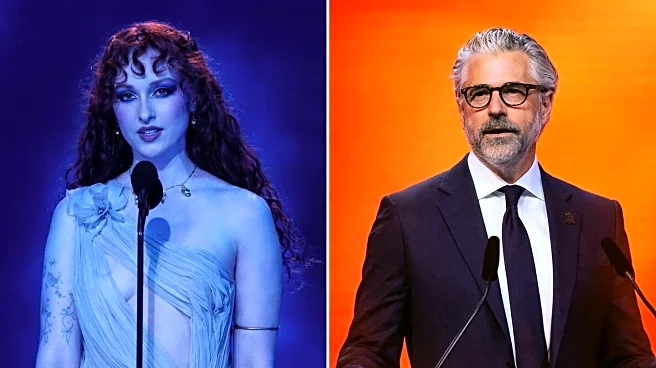At just 25, Maithili Thakur is the youngest MLA in the country. That alone should have sparked celebrations among those who talk of women’s representation in politics. But instead, her rise has been met with silence, scepticism, and even criticism from many who normally champion female empowerment. Her critics say she lacks experience. But this same country has rejected K Annamalai, an honest IPS officer, and E Sreedharan, the “Metro Man”. Credentials clearly aren’t the real issue. Politics also runs on the party wave; we all understand that. Either way, why isn’t the youngest MLA being celebrated?
A woman who didn’t break the mould
Maithili’s success challenges the idea of what a “modern” woman should look like. She wears traditional saris, glass bangles, and a bindi. She sings
bhajans instead of club songs. She wears her Bihari identity on her sleeve. She sings folk songs from different parts of India, especially in Maithili and Bhojpuri, at a time when both languages, particularly the latter, have been reduced to stereotypes through cheap cinema and vulgar songs. Unlike many who are forced to cultivate an edgy persona, use foul language to appear cool and relevant, Maithili is soft-spoken, yet carries a strength. She is grounded despite the unprecedented success she has seen as a singer. She is proof enough that strength does not need aggression or any particular uniform for recognition.
Her success also rests on something often overlooked, or even dismissed in modern narratives: a strong, nurturing family. Today, discussions about feminism and empowerment are built around criticising patriarchy, sometimes painting Indian families as uniformly oppressive and limiting for women. But Maithili’s story complicates that narrative. She was trained in music by a devoted father, encouraged by a loving mother, and supported by brothers who proudly travel and perform with her. She wasn’t silenced or sidelined; she was celebrated. She didn’t need to break away from her household to find her voice; she and her family pursued success together. In a time when liberation is often equated with rebellion, Maithili shows that empowerment can also grow in an environment of affection, guidance, and unity.
Her success was earnt the hard way
Maithili’s journey is not one of overnight fame. She has trained hard as a young person. She competed in a national talent contest at age eleven, was rejected, cried, and returned home. She trained hard and came back in 2015 and was rejected again, and returned home dejected.
Her singing was thought to be “too classical” for film music. Instead of changing herself to suit the market, she built a space where the market changed for her. With her brothers helping her, she began recording folk songs and bhajans at home, uploading them to social media. Slowly, the world found her. Not through a glamorous stage or a record label, but through the quiet consistency of her art.
What began as a rejection became a revolution. The internet didn’t just give Maithili an audience. It gave India back a part of its forgotten musical soul. Maithili created her own universe online. And as they say, after that, there was no looking back.
Instead of chasing trends, she became one. Instead of altering her face to fit industry standards, she kept every feature intact—no nose job, no Botox, no insecurity marketing. Her confidence became her statement.
The feminist blind spot
For decades, we have been taught that a feminist woman must defy tradition, distance herself from patriarchy, and adopt a certain urban persona. Celebrated authors like Anita Desai, Kamala Markandaya and the entire feminist brigade told us that a Westernised lifestyle was imperative to qualify as liberated. But empowerment cannot be a one-size-fits-all formula.
Maithili is self-made, ambitious, talented, grounded, and yet she does not fit the cultural template that has been promoted as “feminist”. She is not bold by those definitions. She is bold by her own. This is empowerment too, but not the kind we’ve been told to applaud.
India is evolving. We are rediscovering our roots, not as a burden but as our strength. Maithili represents that shift, a woman who is modern without being deracinated, who carries her culture without apology, who leads without shedding her softness. Maithili Thakur is a reminder that empowerment can look traditional. That pride can be quiet. That strength can wear glass bangles.
Many like me are quietly rooting for her success. Or, as Maithili herself says at the end of her performances with a selfie, “Yeh dekhiye mere saath hain, itne saare log.”
Hum tumhare saath hain, Maithili Thakur.
Anu Lall is a lawyer and author of the upcoming book, ‘Dharma Ecology: Bishnoi Warriors’. Views expressed in the above piece are personal and solely those of the author. They do not necessarily reflect News18’s views.


/images/ppid_59c68470-image-177070253751678670.webp)
/images/ppid_a911dc6a-image-177070253009297498.webp)







/images/ppid_a911dc6a-image-177070323503719687.webp)

/images/ppid_59c68470-image-177070271785359640.webp)

/images/ppid_59c68470-image-177070275456679704.webp)
/images/ppid_59c68470-image-177070268984632714.webp)